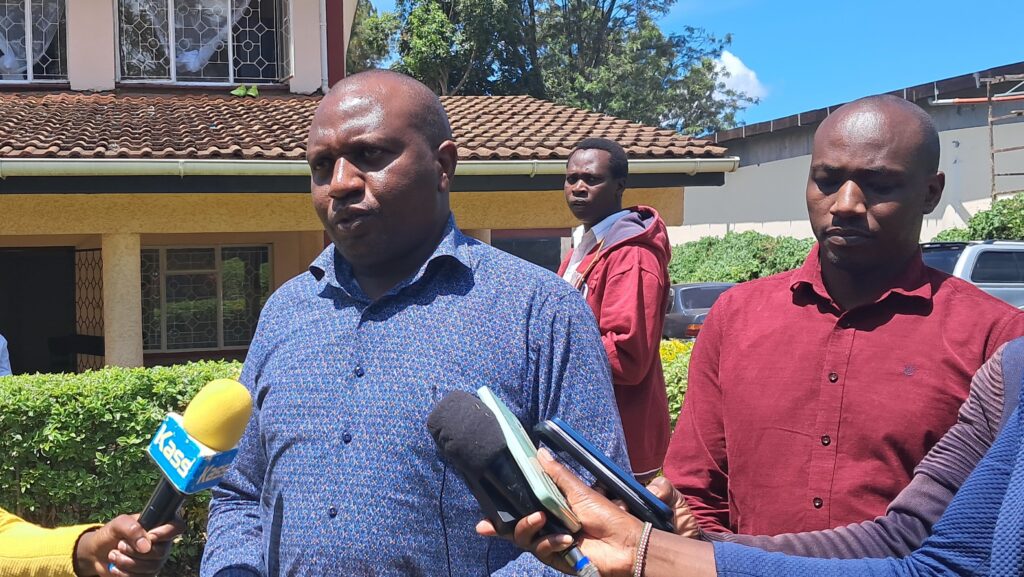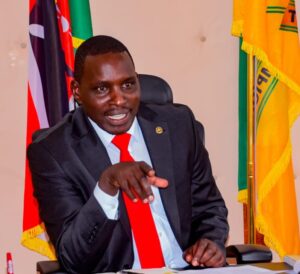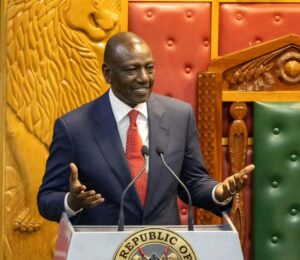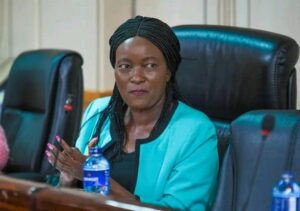MCK Expands Efforts to Enhance Journalists’ Working Conditions with New Media Hubs

In a bold move to support the professional growth and safety of journalists across Kenya, the Media Council of Kenya (MCK) is rolling out a series of media hubs designed to provide journalists with secure, well-equipped, and collaborative workspaces.
This new initiative, part of MCK’s larger strategy to improve the working conditions for journalists, was showcased during a recent visit to the Eldoret Media Hub.
MCK CEO David Omwoyo, who visited the Eldoret facility, explained that the media hubs are being created to address significant gaps in resources and infrastructure for journalists, particularly in regional areas. Many media houses in Kenya have correspondents spread across the country, but these journalists often work without adequate access to equipment, reliable internet, or safe environments to report from. The new media hubs aim to bridge these gaps by offering journalists a central, well-resourced location to work, collaborate, and grow professionally.
“The primary objective of establishing these hubs is to offer journalists a safe, comfortable, and resourceful place to work. While media houses have correspondents throughout the country, many lack the infrastructure and equipment necessary for effective reporting. These hubs will serve as central workspaces for journalists from local, national, and even international media outlets,” Omwoyo said during his visit to the Eldoret hub.
The Eldoret hub is one of eight that MCK plans to establish in key regions across Kenya. These hubs will provide journalists with a variety of resources, including modern equipment, fast internet connectivity, and a professional environment where they can conduct their work without distractions or security concerns. The project is part of MCK’s broader mission to foster a more effective and safe media environment in Kenya.
Omwoyo stressed that the safety of journalists is a priority within the media hub initiative. “Beyond providing a conducive work environment, we ensure that these spaces are secure. Journalists can now work without fear of surveillance, intimidation, or undue interference. We want to offer a space where they feel safe to carry out their duties, which are essential to a functioning democracy,” he explained.
The media hubs are designed to be collaborative spaces that encourage resource-sharing and professional networking. Journalists, particularly those from smaller or regional media outlets, often face challenges in accessing the tools they need to report effectively. Through the hubs, MCK aims to provide a shared workspace where journalists can borrow equipment, access high-quality technology, and collaborate on stories with colleagues from other outlets.
“These hubs will allow journalists to access equipment they may not personally own or their media organizations may not provide. This is essential in ensuring that they can complete their assignments efficiently and effectively, even if they lack personal resources,” Omwoyo added. The hubs will also be equipped with facilities such as video editing suites, photography equipment, and high-speed internet connections, all designed to support a wide range of journalistic activities.
In addition to providing infrastructure, the hubs will serve as a focal point for training and mentorship. Omwoyo emphasized the importance of developing the skills of young and emerging journalists, saying that the media hubs would be integral in fostering professional growth. “Mentorship is a key component of these hubs. We want to create an environment where senior journalists can share their expertise and knowledge with the younger generation, helping them improve their skills and understanding of the profession. This mentorship is critical to raising the standards of journalism across the country.”
The hubs will also provide opportunities for journalists to attend training workshops, participate in industry discussions, and engage in continuous professional development. MCK believes that these initiatives will help journalists not only produce high-quality reporting but also develop a deeper understanding of ethical journalism, investigative techniques, and the evolving media landscape.
The Eldoret Media Hub, which opened its doors to journalists from across the region, received a warm reception from local media professionals. The Uasin Gishu Journalists Association, led by Chairperson James Gitaka and Deputy Chair Mareus Kemboi, commended MCK for the initiative, highlighting how it would significantly enhance the ability of local journalists to report effectively and freely. “This hub is a game-changer for journalists in this region. It will help us improve our reporting standards and provide a safe space where we can work without fear of threats or intimidation,” Gitaka said.
The Uasin Gishu Journalists Association also expressed its appreciation for MCK’s ongoing efforts to improve the working environment for journalists across the country. “The creation of these media hubs is a timely and much-needed initiative. We are looking forward to utilizing the resources here in Eldoret and across other regions. This will go a long way in enhancing the quality of journalism and ensuring that the media continues to play its critical role in society,” Gitaka added.
The roll-out of these media hubs aligns with MCK’s broader mission to strengthen press freedom in Kenya, providing journalists with the tools, security, and professional development opportunities they need to carry out their work without compromise. The hubs are also expected to foster greater collaboration between local and national journalists, creating a more interconnected media community.
As the project continues to expand, MCK plans to open additional hubs in other key locations across the country, each one designed to meet the specific needs of journalists in those regions. The establishment of these hubs is seen as a key step toward building a more sustainable, effective, and independent media sector in Kenya.





